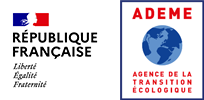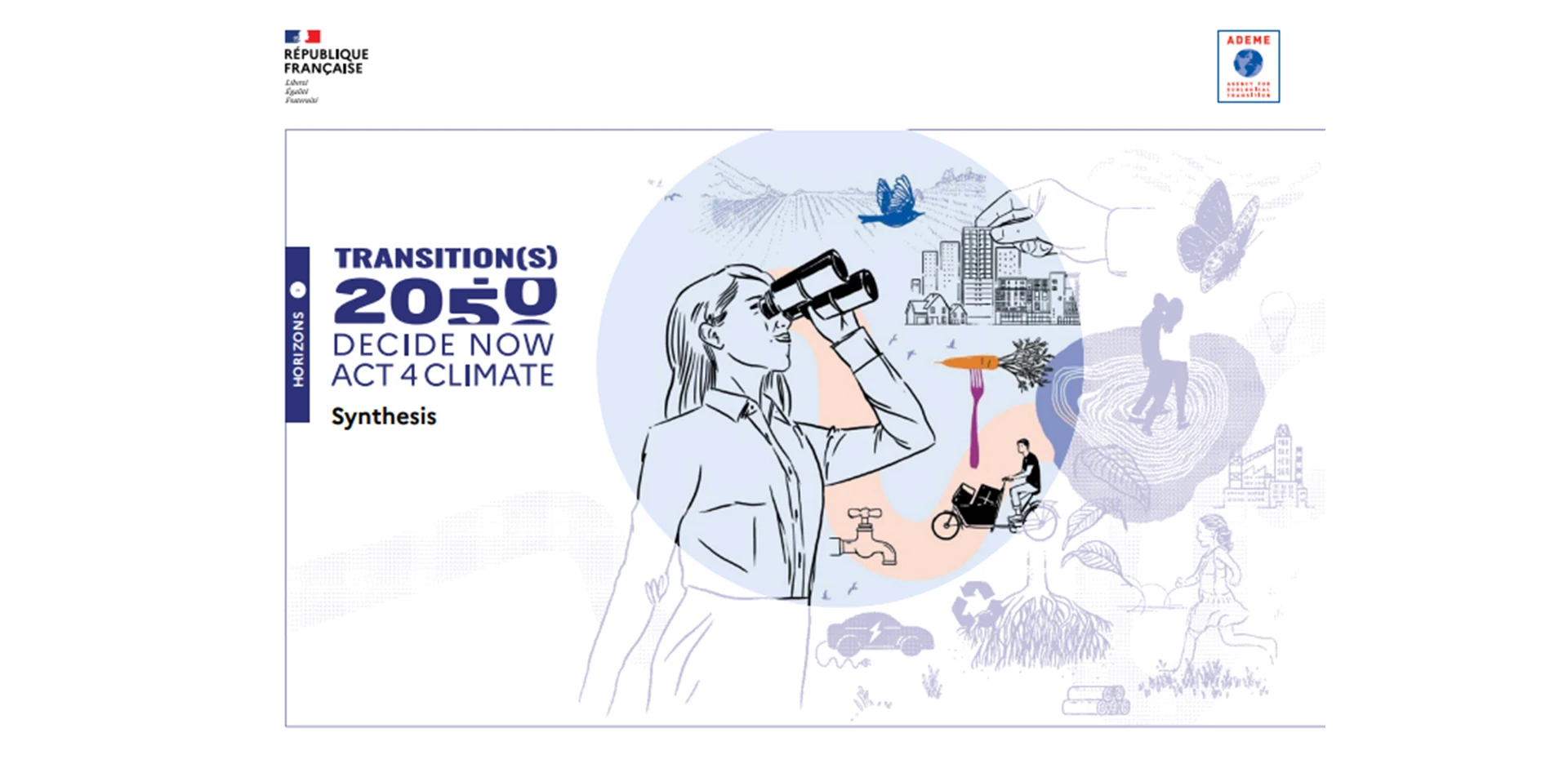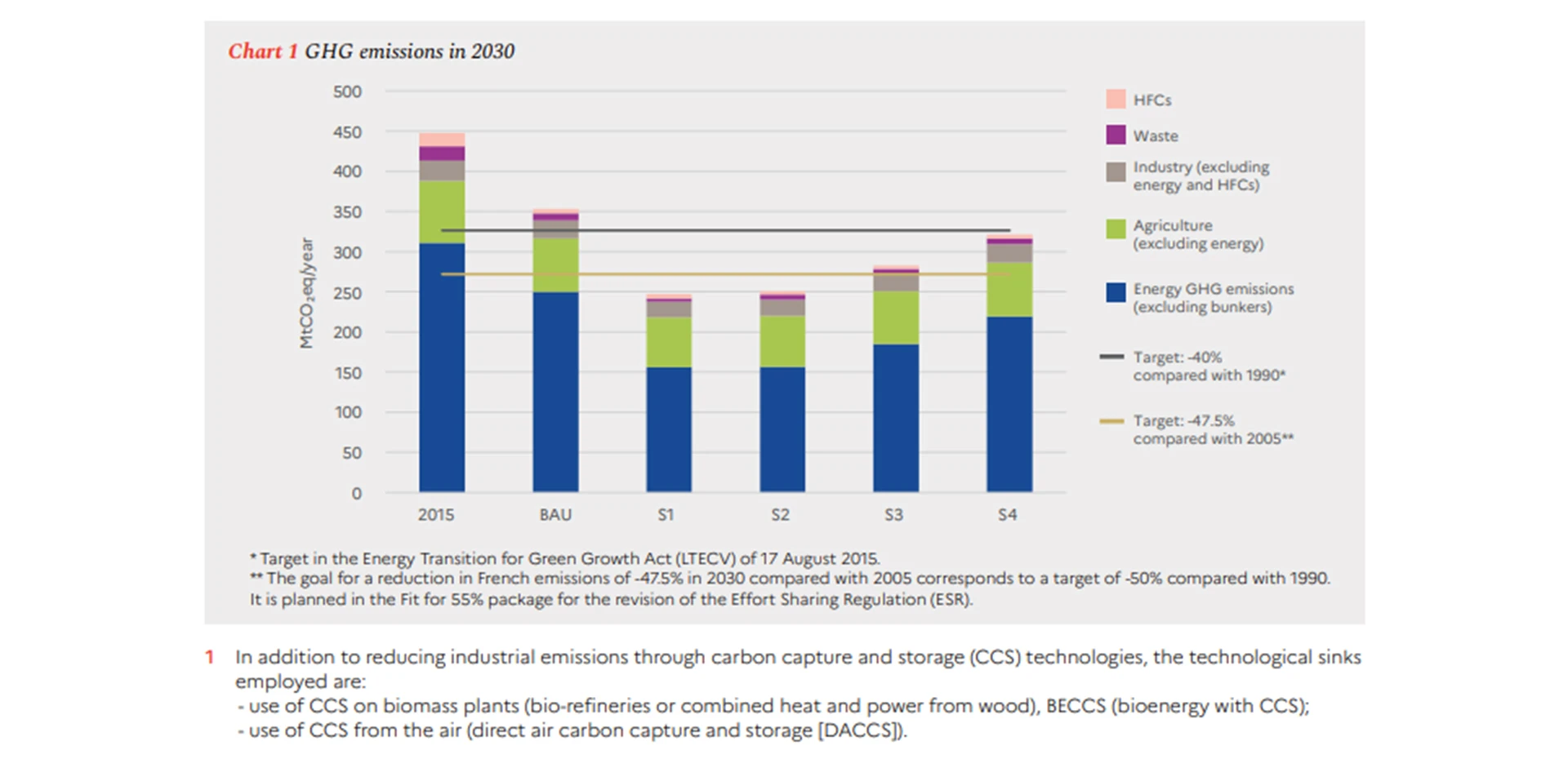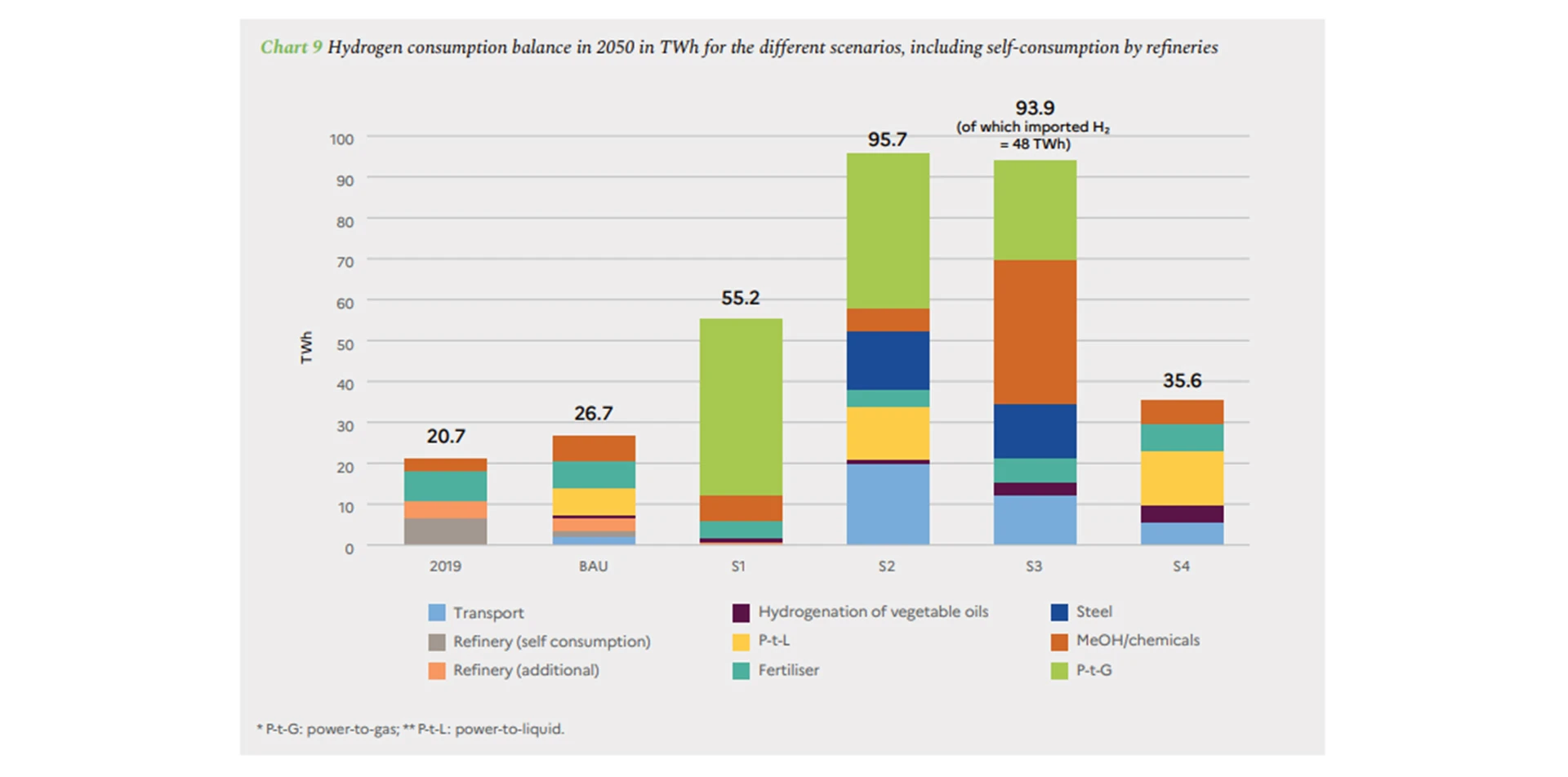The project
Enerdata was selected by ADEME, the French Agency for Ecological Transition, to assist in the elaboration of its carbon neutrality scenarios by consolidating sectoral prospective analyses at different scales, and with multiple tools.
A crucial part of the mission was to ensure the overall consistency of scenarios, by exploring long-term challenges related to energy, GHG emissions and raw materials.

Strategic stakes
In the wake of the Paris Agreement in 2015, France adopted the Energy Transition for Green Growth Act (LTECV) and the National Low-Carbon Strategy (SNBC) aimed at reducing GHG emissions and increasing the share of renewable energies.
ADEME plays a key coordinating role through research, goal setting, recommendations, and financial support. In the context of the 2021 presidential elections, ADEME had anticipated updates of the National Low Carbon Strategy and wished to influence the debate on carbon neutrality by proposing new scenarios.
Central to its mission, ADEME seeks to issue recommendations matching the requirements and specificities of each type of stakeholder (companies, political authorities, citizens), in each economic sector and geographic area. Therefore, to meet this objective, ADEME needed scenario hypotheses and results broken down by sector and by scale.
In addition, to explore and propose alternate pathways to net-zero, ADEME had to guarantee the internal and mutual consistency of its four scenarios, requiring advanced expertise in energy modelling.
- Enerdata contributed its expertise in advanced energy modelling to review and refine the hypotheses established by ADEME, and to develop an integration tool capable of ensuring the consistency of scenarios and the validity of prospective results.
- Enerdata produced a set of energy indicators to better calibrate the hypotheses and measure the results of ADEME’s scenarios. Complementing the key energy indicators gathered in our Information Services Suite, we further address specific client needs by designing tailored energy efficiency indices.
- Enerdata conducted extensive interviews of energy, climate, and environmental experts to elaborate a cross-sectional view of the challenges entailed by the French transition to net-zero. This task was facilitated by our teams’ ability to structure projects involving many stakeholders and huge amounts of information.
- Improvement of ADEME’s modelling framework
- Review of ADEME’s modelling tools
- Benchmarking of ADEME’s baseline scenario with other national or international scenarios
- Assessment of the scope, assumptions, and consistency of scenarios, suggestions for modelling improvements
- Coordination of hypotheses relating to lifestyle (e.g., housing, mobility, diet), societal choices (e.g., sharing economy, environmental protection), technology (e.g., energy efficiency, low-tech), governance (e.g., carbon regulation, international cooperation), territories (e.g., urban outmigration, land policies), economy (e.g., global trade, reindustrialisation), and industry (e.g., material recycling, local production).
- Completion of ADEME’s modelling results with a custom integration tool
- Development of an integration tool to accurately model and quantify ADEME’s scenario assumptions
- Additional calculations to fill in the gaps identified in ADEME’s initial scenarios
- Inclusion of the construction and refinery sectors
- Harmonisation of ADEME’s scenarios to ensure their consistency
- Supplementary calculations for missing years
- Initialisation of the scenarios based on the same reference year
- Mission report
- Presentation of the methodology and work executed by Enerdata
- Results delivery for ADEME’s study report – Transition(s) 2050 Report (French only)
- Provision of final modelling results, consolidated with the integration tool
- Proofreading of ADEME’s study synthesis – Transition(s) 2050 Synthesis
- Summarised presentation and analysis of scenario results, with findings by sector and key takeaways



"With Enerdata, we worked on an ambitious and interdisciplinary project. It required an extensive coordination and interfacing between different sectoral approaches. Enerdata is a key actor on energy and climate topics. Their expertise on supply and demand was essential to the project success. Their team was available to discuss our needs. They were flexible to adapt to the project's evolution."
 Energy and Climate Databases
Energy and Climate Databases Market Analysis
Market Analysis